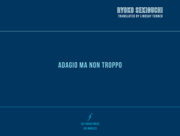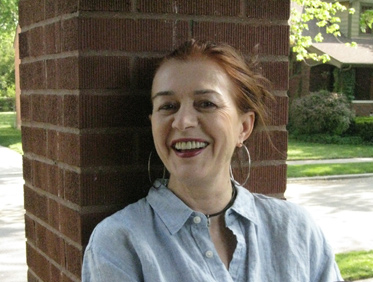adagio ma non troppo
Ryoko Sekiguchi
Translation by Lindsay Turner
Introduction by Sawako Nakayasu
Trilingual edition: Japanese, French, English
Literature | $17.00
Global Poetics Series
ISBN 13: 978-1-934254-70-7
Size: 5.75″ x 6.5″
Pages: 124
Binding: Softcover, Perfect
Release: September 1, 2018
BUY NOW at LARB BOOKS
Ryoko Sekiguchi takes the letters Fernando Pessoa wrote his would-be fiancée Ophelia Queiroz as her subject matter in adagio ma non troppo. adagio’s 36 prose blocks – appearing in Japanese, French, and English for the first time in the 2018 Les Figues Press trilingual edition (trans. Lindsay Turner) – echo the 36 letters Pessoa addressed to Queiroz dated from March 1, 1920 until January 11, 1930.
Sekiguchi reconceives the Lisbon Pessoa and Queiroz describe in their correspondence as a map over which rendezvous, affairs, and liaisons can be continued through writing. “Written words,” she asks, “do they erase themselves? […] or instead do all words, once read, never disappear?” Sekiguchi superimposes objects over a landscape where names carry shapes, directions, and the places to which they refer. In her Lisbon, a chair slid into daylight or set before a window punctuates time like comma in a sentence. An old couple contemplating ducks indicates a line between two points like a parasol taken from its stand announces a departure. As love establishes boundaries and relationships between people, if our objects convey our love for one another, then Sekiguchi traces the paths and perimeters lovers leave behind.
Originally published in a bilingual edition containing Sekiguchi’s self-translation into the French (Le bleu du ciel éditions, 2007), adagio ma non troppo belongs in the same category as the modernist works of Franz Kafka and Pessoa – as well as the recent epistolary work of Marguerite Duras, Roland Barthes, Karl Ove Knausgaard, Maggie Nelson, and Claire-Louise Bennett – writing as a philosophic and aesthetic act that reshapes our notions of time, space, translation, and love.



